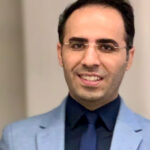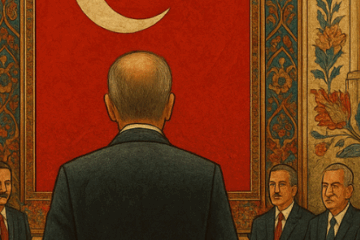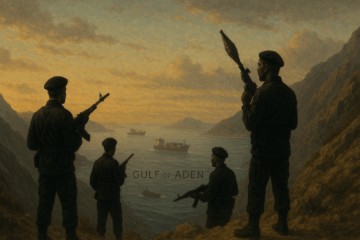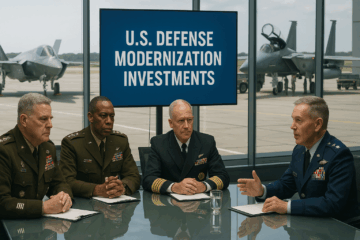Since the outbreak of the Syrian civil war in 2011, Iran initially denied the presence of its forces on Syrian soil, despite evidence to the contrary. Later, Tehran was forced to confirm its involvement but branded it under the banner of “Modafean-e Haram” (defenders of the shrine), claiming to protect the Shi’a holy site of Sayyida Zaynab’s shrine in Damascus. Yet Iran’s deep entrenchment in Syria was far beyond religious symbolism; it was a strategic foothold that Tehran defended at enormous cost—sacrificing thousands of its forces in the process.
The fall of Bashar al-Assad in December 2024 was a seismic event, striking a blow to both Iranian and Russian influence in Syria. While Moscow, despite its war in Ukraine and mounting Western sanctions, remains committed to its military bases, Iran’s position is far more complex. Unlike Russia, whose primary interests are geopolitical and military, Iran sees Syria as an ideological and strategic battleground central to its regional ambitions.
The de facto regime in Damascus faces an uphill battle in asserting control over a fragmented and failing state. Recent upheavals have occurred, with over a thousand, including civilians, killed in Latakia and other coastal cities. These are historical Alawite strongholds, which highlights the government’s fragile grasp on power. These disturbances, fuelled by remnants of Assad’s rule, cannot be subdued through isolated security operations or curfews alone. They expose a deeper dissatisfaction that neither Damascus nor its external backer, Turkey, can easily suppress.
Despite its opposition to a Sunni Islamist regime in Damascus, Iran, as a Shia’ state, retains influence over the Alawite community—the backbone of Assad’s former regime. Tehran cultivated religious and political alliances with the Alawites, ensuring that its ideological footprint in Syria endures, even as the political landscape shifts.
The situation is further inflamed by the transitional constitution, which upholds Syria’s identity as the “Syrian Arab Republic”—denying the existence of non-Arab nationalities and imposing a Muslim president with near-absolute authority and Islamic law as “a main source” of legislation. This exclusionary framework was rejected by Kurds and Druze alike, who view it as a mere continuation of Assad’s rule, now under a Sunni Islamist veneer. The brutal repression that has accompanied the regime’s efforts to enforce this new order, resulting in thousands of civilian and military deaths, only fuels further opposition.
In southern Syria, the Druze, long wary of both Sunni Islamist factions and Iranian hegemony, are positioning themselves to consolidate local autonomy. Under Israel’s umbrella, the Druze are unlikely to align with any single faction, instead leveraging their position for greater self-rule. Meanwhile, Israel maintains a watchful eye on the evolving situation, preserving its military presence in the south of Syria. From Tel Aviv’s perspective, an extremist Sunni regime in Damascus presents a far greater security threat than a Shi’a-dominated government, making Israel’s calculations in Syria more complex than ever.
For Turkey, the evolving situation presents both opportunities and challenges. While Ankara may find common cause with Sunni factions seeking to assert dominance over Syria, it will remain constrained by Iran’s interests. Iran deeply embedded itself in Syria’s military, economic, and political structures, with the Islamic Revolutionary Guard Corps (IRGC) playing a pivotal role in shaping the previous regime’s policies. Iran has sacrificed thousands of Quds and Iranian Revolutionary Guard Corps ground forces and billions of dollars in Syria. Iran made significant efforts to keep Assad in power and no one can imagine that Tehran will simply walk away and abandon its investment.
The Iranian regime followed this strategy before. After eight years of war with Iraq and massive losses, it steadily expanded its influence over Iraq’s Shi’a sector. Even after the fall of Saddam and the rise of ISIS, Iran established military proxies, ensuring that Iraq remained unstable.
Through control over Shi’a political parties, it works to suppress the Kurdistan Regional Government and keep the Sunnis weak. Those with a stake in Syria’s future should expect a similar Iranian strategy, this time through the Alawites. Iran will seek an opportune moment to replicate the strategy and will not allow Turkey, which has invested significantly less in Syria, to reap the political and economic benefits that Syria offers.
Looking forward, Syria’s future will be shaped by the competing interests of regional and global actors, each pursuing their own trajectories. The western part of the country, where the new regime struggles to consolidate power, will remain a flashpoint for unrest. Meanwhile, Kurdish and Druze-controlled territories are likely to maintain relative stability. The Kurdish forces, with their well-organized military and political structures, have effectively consolidated power, establishing governance mechanisms independent of Damascus.
Israel has little incentive to back any radical transformation that could empower hostile factions. What remains undeniable, however, is that the new regime in Damascus lacks the capacity to curb Iran’s entrenched influence. Tehran has invested too much in blood and resources to relinquish its foothold.
In the ever-shifting sands of Syrian politics, Iran remains a force—one that neither Turkey nor the new rulers in Damascus should ignore as its axis of resistance has the potential to reshape itself—as evidenced by the conflict between Hay’at Tahrir al-Sham in Damascus and Hizballah in Lebanon. Iran’s ally, Russia, continues to maintain bases in the Alawite-controlled region, which leaves the Russians ever a concern.
Loqman Radpey, PhD, is a fellow at the Middle East Forum with over a decade of experience analyzing the international legal and political dimensions of the right to self-determination for peoples and nations, including the case of Kurdistan. He is the author of Towards an Independent Kurdistan: Self-Determination in International Law.
About the Author

Loqman Radpey
Dr. Loqman Radpey, an expert on Kurdistan and the Middle East, is a fellow at the Middle East Forum with over a decade of experience analyzing the legal and political dimensions of conflicts in the Middle East, including the Kurdistani regions in Iran, Iraq, Turkey, and Syria. He is the author of ‘Towards an Independent Kurdistan: Self-Determination in International Law’ (published by Routledge in 2023), the first comprehensive historico-legal account of Kurdish aspirations for statehood. His upcoming work, “Self-Determination during the Cold War”, will appear in ‘The Cambridge History of International Law’ (Volume XI).




